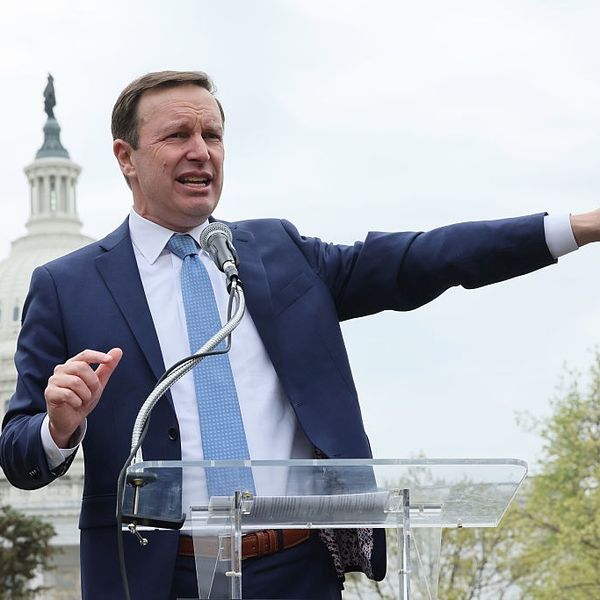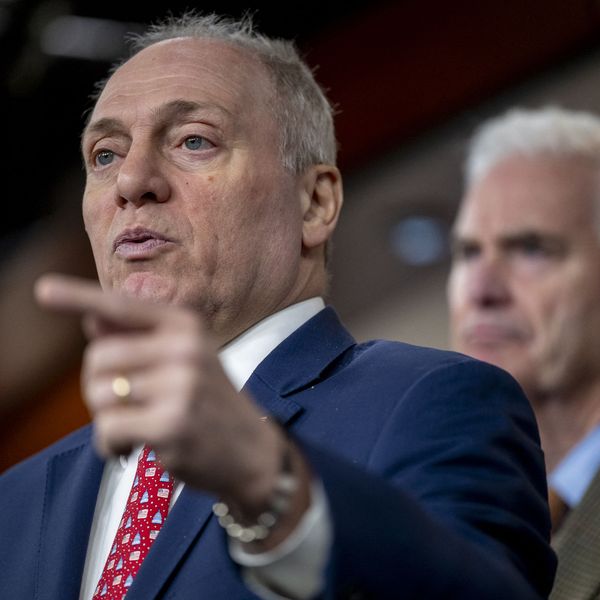Beware the Dangers of Congress' Latest Cybersecurity Bill
A new cybersecurity bill poses serious threats to our privacy, gives the government extraordinary powers to silence potential whistleblowers, and exempts these dangerous new powers from transparency laws.
The Cybersecurity Information Sharing Act of 2014 ("CISA") was scheduled to be marked up by the Senate Intelligence Committee yesterday but has been delayed until after next week's congressional recess. The response to the proposed legislation from the privacy, civil liberties, tech, and open government communities was quick and unequivocal - this bill must not go through.
A new cybersecurity bill poses serious threats to our privacy, gives the government extraordinary powers to silence potential whistleblowers, and exempts these dangerous new powers from transparency laws.
The Cybersecurity Information Sharing Act of 2014 ("CISA") was scheduled to be marked up by the Senate Intelligence Committee yesterday but has been delayed until after next week's congressional recess. The response to the proposed legislation from the privacy, civil liberties, tech, and open government communities was quick and unequivocal - this bill must not go through.
The bill would create a massive loophole in our existing privacy laws by allowing the government to ask companies for "voluntary" cooperation in sharing information, including the content of our communications, for cybersecurity purposes. But the definition they are using for the so-called "cybersecurity information" is so broad it could sweep up huge amounts of innocent Americans' personal data.
The Fourth Amendment protects Americans' personal data and communications from undue government access and monitoring without suspicion of criminal activity. The point of a warrant is to guard that protection. CISA would circumvent the warrant requirement by allowing the government to approach companies directly to collect personal information, including telephonic or internet communications, based on the new broadly drawn definition of "cybersecurity information."
While we hope many companies would jealously guard their customers' information, there is a provision in the bill that would excuse sharers from any liability if they act in "good faith" that the sharing was lawful.
Collected information could then be used in criminal proceedings, creating a dangerous end-run around laws like the Electronic Communications Privacy Act, which contain warrant requirements.
In addition to the threats to every American's privacy, the bill clearly targets potential government whistleblowers. Instead of limiting the use of data collection to protect against actual cybersecurity threats, the bill allows the government to use the data in the investigation and prosecution of people for economic espionage and trade secret violations, and under various provisions of the Espionage Act.
It's clear that the law is an attempt to give the government more power to crack down on whistleblowers, or "insider threats," in popular bureaucratic parlance. The Obama Administration has brought more "leaks" prosecutions against government whistleblowers and members of the press than all previous administrations combined. If misused by this or future administrations, CISA could eliminate due process protections for such investigations, which already favor the prosecution.
While actively stripping Americans' privacy protections, the bill also cloaks "cybersecurity"-sharing in secrecy by exempting it from critical government transparency protections. It unnecessarily and dangerously provides exemptions from state and local sunshine laws as well as the federal Freedom of Information Act. These are both powerful tools that allow citizens to check government activities and guard against abuse.
Edward Snowden's revelations from the past year, of invasive spying programs like PRSIM and Stellar Wind, have left Americans shocked and demanding more transparency by government agencies. CISA, however, flies in the face of what the public clearly wants.
(Two coalition letters, here and here, sent to key members of the Senate yesterday detail the concerns of a broad coalition of organizations, including the ACLU.)
An Urgent Message From Our Co-Founder
Dear Common Dreams reader, The U.S. is on a fast track to authoritarianism like nothing I've ever seen. Meanwhile, corporate news outlets are utterly capitulating to Trump, twisting their coverage to avoid drawing his ire while lining up to stuff cash in his pockets. That's why I believe that Common Dreams is doing the best and most consequential reporting that we've ever done. Our small but mighty team is a progressive reporting powerhouse, covering the news every day that the corporate media never will. Our mission has always been simple: To inform. To inspire. And to ignite change for the common good. Now here's the key piece that I want all our readers to understand: None of this would be possible without your financial support. That's not just some fundraising cliche. It's the absolute and literal truth. We don't accept corporate advertising and never will. We don't have a paywall because we don't think people should be blocked from critical news based on their ability to pay. Everything we do is funded by the donations of readers like you. Will you donate now to help power the nonprofit, independent reporting of Common Dreams? Thank you for being a vital member of our community. Together, we can keep independent journalism alive when it’s needed most. - Craig Brown, Co-founder |
A new cybersecurity bill poses serious threats to our privacy, gives the government extraordinary powers to silence potential whistleblowers, and exempts these dangerous new powers from transparency laws.
The Cybersecurity Information Sharing Act of 2014 ("CISA") was scheduled to be marked up by the Senate Intelligence Committee yesterday but has been delayed until after next week's congressional recess. The response to the proposed legislation from the privacy, civil liberties, tech, and open government communities was quick and unequivocal - this bill must not go through.
The bill would create a massive loophole in our existing privacy laws by allowing the government to ask companies for "voluntary" cooperation in sharing information, including the content of our communications, for cybersecurity purposes. But the definition they are using for the so-called "cybersecurity information" is so broad it could sweep up huge amounts of innocent Americans' personal data.
The Fourth Amendment protects Americans' personal data and communications from undue government access and monitoring without suspicion of criminal activity. The point of a warrant is to guard that protection. CISA would circumvent the warrant requirement by allowing the government to approach companies directly to collect personal information, including telephonic or internet communications, based on the new broadly drawn definition of "cybersecurity information."
While we hope many companies would jealously guard their customers' information, there is a provision in the bill that would excuse sharers from any liability if they act in "good faith" that the sharing was lawful.
Collected information could then be used in criminal proceedings, creating a dangerous end-run around laws like the Electronic Communications Privacy Act, which contain warrant requirements.
In addition to the threats to every American's privacy, the bill clearly targets potential government whistleblowers. Instead of limiting the use of data collection to protect against actual cybersecurity threats, the bill allows the government to use the data in the investigation and prosecution of people for economic espionage and trade secret violations, and under various provisions of the Espionage Act.
It's clear that the law is an attempt to give the government more power to crack down on whistleblowers, or "insider threats," in popular bureaucratic parlance. The Obama Administration has brought more "leaks" prosecutions against government whistleblowers and members of the press than all previous administrations combined. If misused by this or future administrations, CISA could eliminate due process protections for such investigations, which already favor the prosecution.
While actively stripping Americans' privacy protections, the bill also cloaks "cybersecurity"-sharing in secrecy by exempting it from critical government transparency protections. It unnecessarily and dangerously provides exemptions from state and local sunshine laws as well as the federal Freedom of Information Act. These are both powerful tools that allow citizens to check government activities and guard against abuse.
Edward Snowden's revelations from the past year, of invasive spying programs like PRSIM and Stellar Wind, have left Americans shocked and demanding more transparency by government agencies. CISA, however, flies in the face of what the public clearly wants.
(Two coalition letters, here and here, sent to key members of the Senate yesterday detail the concerns of a broad coalition of organizations, including the ACLU.)
A new cybersecurity bill poses serious threats to our privacy, gives the government extraordinary powers to silence potential whistleblowers, and exempts these dangerous new powers from transparency laws.
The Cybersecurity Information Sharing Act of 2014 ("CISA") was scheduled to be marked up by the Senate Intelligence Committee yesterday but has been delayed until after next week's congressional recess. The response to the proposed legislation from the privacy, civil liberties, tech, and open government communities was quick and unequivocal - this bill must not go through.
The bill would create a massive loophole in our existing privacy laws by allowing the government to ask companies for "voluntary" cooperation in sharing information, including the content of our communications, for cybersecurity purposes. But the definition they are using for the so-called "cybersecurity information" is so broad it could sweep up huge amounts of innocent Americans' personal data.
The Fourth Amendment protects Americans' personal data and communications from undue government access and monitoring without suspicion of criminal activity. The point of a warrant is to guard that protection. CISA would circumvent the warrant requirement by allowing the government to approach companies directly to collect personal information, including telephonic or internet communications, based on the new broadly drawn definition of "cybersecurity information."
While we hope many companies would jealously guard their customers' information, there is a provision in the bill that would excuse sharers from any liability if they act in "good faith" that the sharing was lawful.
Collected information could then be used in criminal proceedings, creating a dangerous end-run around laws like the Electronic Communications Privacy Act, which contain warrant requirements.
In addition to the threats to every American's privacy, the bill clearly targets potential government whistleblowers. Instead of limiting the use of data collection to protect against actual cybersecurity threats, the bill allows the government to use the data in the investigation and prosecution of people for economic espionage and trade secret violations, and under various provisions of the Espionage Act.
It's clear that the law is an attempt to give the government more power to crack down on whistleblowers, or "insider threats," in popular bureaucratic parlance. The Obama Administration has brought more "leaks" prosecutions against government whistleblowers and members of the press than all previous administrations combined. If misused by this or future administrations, CISA could eliminate due process protections for such investigations, which already favor the prosecution.
While actively stripping Americans' privacy protections, the bill also cloaks "cybersecurity"-sharing in secrecy by exempting it from critical government transparency protections. It unnecessarily and dangerously provides exemptions from state and local sunshine laws as well as the federal Freedom of Information Act. These are both powerful tools that allow citizens to check government activities and guard against abuse.
Edward Snowden's revelations from the past year, of invasive spying programs like PRSIM and Stellar Wind, have left Americans shocked and demanding more transparency by government agencies. CISA, however, flies in the face of what the public clearly wants.
(Two coalition letters, here and here, sent to key members of the Senate yesterday detail the concerns of a broad coalition of organizations, including the ACLU.)

